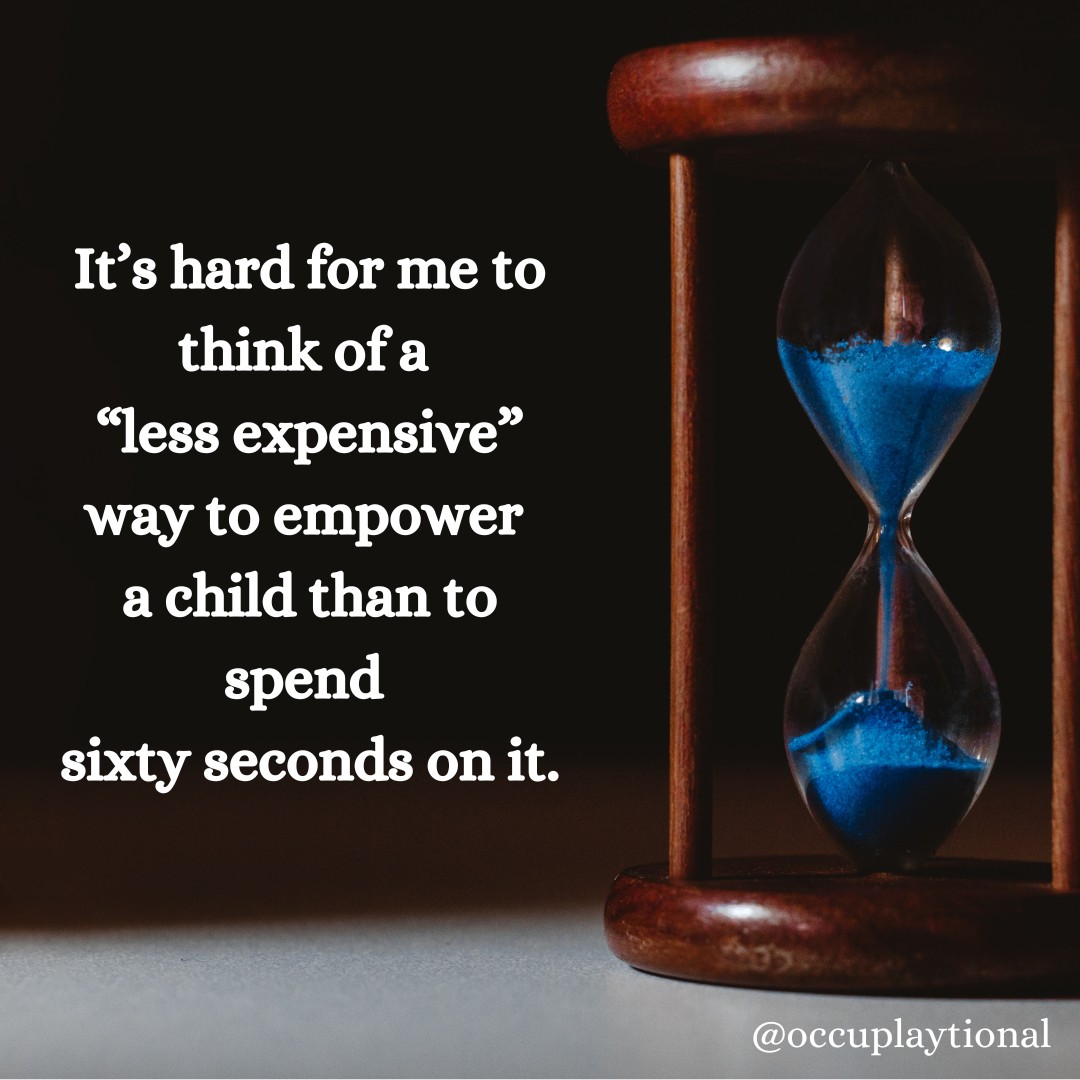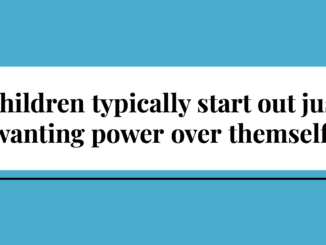“We have to leave the park in five minutes.” “How about six?”
“You need to work on this for ten minutes.” “No, I choose nine!”
What do you say next?
Do you dig your heels in? Fight for that sixty seconds? That sixty grumpy, angry, dysregulated seconds, that might just poison the whole thing?
I heard this back-and-forth play out quite often at some of the schools I worked at. Many of them felt like the right thing to do, the thing they were required to do, the thing they felt came naturally to them, was to refuse.
Hold the line.
Dig in.
Make sure they know that their own empowerment, their agency over their body, is not worth sixty seconds to you. Try to break them of thinking that they could ever have that kind of right, to tell you that their brain would like a say in the way they’re treated.
Really?
It’s hard for me to think of a “less expensive” way to empower a child than to spend sixty seconds on it.

Are there some kids and some situations when they ask for one more minute and what they really mean is “I need eight more hours, I’ll never ever be ready to leave”? Yeah there are. Does that mean they should be shut down before they ever get the chance to try? No, I don’t think it does. This would be an excellent time for my “naming the subtext” tool — an excellent time to say, “Hey, I’ve noticed that when you ask for one more minute, it’s still really hard for you after that minute is up. Is there a better way that we can make a deal we can both keep?”
Heck, I make promises to do things for people and then later those promises feel impossible and I can’t remember why I made them. I don’t know why I’d expect any different from a child.
Am I saying you have to get caught in an infinite loop and never hold a limit? No, of course I’m not saying that. There are times when there’s no wiggle room. Or when the wiggle room has already been wiggled, and now that’s done. I actually think there’s a world of difference between a kid who’s carried (lovingly) off a playground after 5 minutes, having never had their voice heard, and a kid who’s carried (lovingly) off a playground after 6 or 7, because one negotiation wasn’t enough and they’re not able to be ready to go of their own volition.
This is also all assuming that a child is old enough for time to be a meaningful measurement to them, which is only really true by like 6, 7, 8 on up…. Before that, measuring it in something concrete (“five more slides”, or “one more episode”, or “we’re going to clean up for as long as this song is”) is a lot more meaningful.
Some kids thrive on having a timer set or being a part of choosing to set it; for some, the very concrete visual of their time slipping away is understandably overwhelming. You gotta know the kid you’re working with.
Just… keep the long game in mind. A kid bartering with you is a kid who wants to work with you, but also wants to get to have a say in their own life.
That’s not bad. That’s not outrageous. That’s just human.



